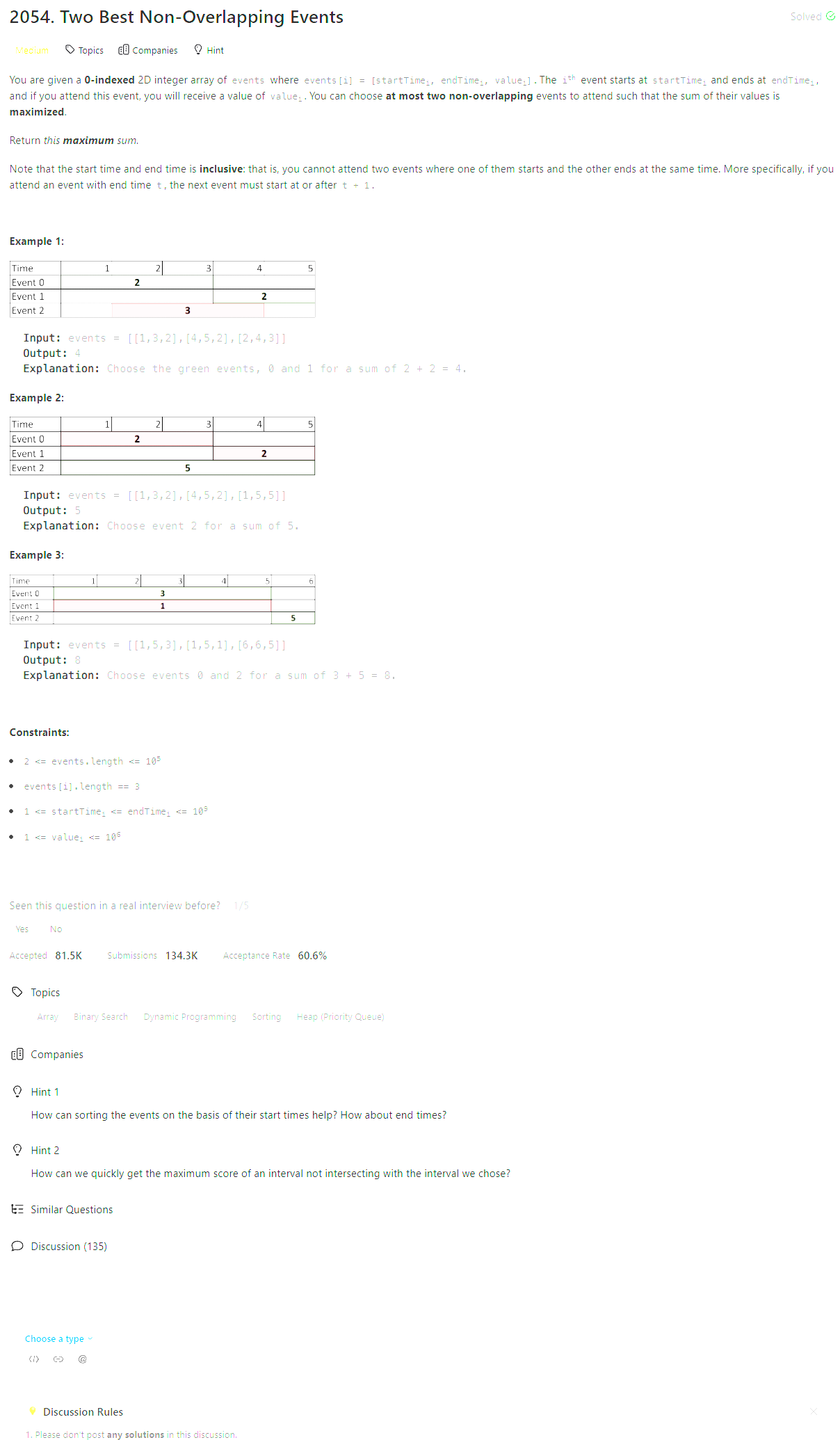Problem Statement

Brute Force [TLE]
class Solution:
def maxTwoEvents(self, events: List[List[int]]) -> int:
events.sort()
N = len(events)
max_sum = 0
for i in range(N):
curr_start, curr_end, curr_val = events[i]
max_sum = max(max_sum, curr_val)
for j in range(i + 1, N):
next_start, next_end, next_val = events[j]
if next_start > curr_end:
max_sum = max(max_sum, curr_val + next_val)
return max_sum
Editorial
Approach 1: Top-down Dynamic Programming
class Solution:
def maxTwoEvents(self, events):
events.sort()
dp = [[-1] * 3 for _ in range(len(events))]
return self.find_events(events, 0, 0, dp)
# Recursive function to find the greatest sum for the pairs.
def find_events(self, events, idx, cnt, dp):
if cnt == 2 or idx >= len(events):
return 0
if dp[idx][cnt] == -1:
end = events[idx][1]
lo, hi = idx + 1, len(events) - 1
while lo < hi:
mid = lo + ((hi - lo) >> 1)
if events[mid][0] > end:
hi = mid
else:
lo = mid + 1
include = events[idx][2] + (
self.find_events(events, lo, cnt + 1, dp)
if lo < len(events) and events[lo][0] > end
else 0
)
exclude = self.find_events(events, idx + 1, cnt, dp)
dp[idx][cnt] = max(include, exclude)
return dp[idx][cnt]
Approach 2: Min-heap
class Solution:
def maxTwoEvents(self, events: List[List[int]]) -> int:
# Create a list to store the pair (end time, value) for events
pq = []
# Sort the events by their start time
events.sort(key=lambda x: x[0])
max_val = 0
max_sum = 0
for event in events:
# Pop all valid events from the priority queue and take their maximum
while pq and pq[0][0] < event[0]:
max_val = max(max_val, pq[0][1])
heapq.heappop(pq)
# Calculate the maximum sum by adding the current event's value and the best previous event's value
max_sum = max(max_sum, max_val + event[2])
# Push the current event's end time and value into the heap
heapq.heappush(pq, (event[1], event[2]))
return max_sum
Approach 3: Greedy
class Solution:
def maxTwoEvents(self, events):
times = []
for e in events:
# 1 denotes start time.
times.append([e[0], 1, e[2]])
# 0 denotes end time.
times.append([e[1] + 1, 0, e[2]])
ans, max_value = 0, 0
times.sort()
for time_value in times:
# If current time is a start time, find maximum sum of maximum end
# time till now.
if time_value[1]:
ans = max(ans, time_value[2] + max_value)
else:
max_value = max(max_value, time_value[2])
return ans
